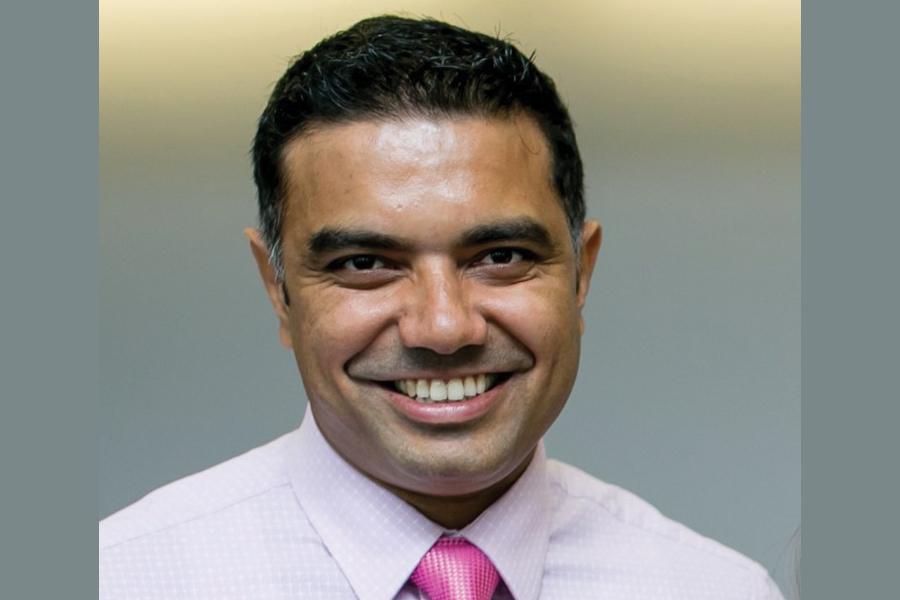Oumesh Sauba says that the self-employed, by putting aside just a few hours
every week, can see more money in their accounts.
IF you’re self-employed it can be easy to become distracted from the financial side of your business as you continue to work for your clients while constantly looking for new business. However, by putting aside just a few hours every week you could see more money in your account.
We all spend time searching for ways we can save money in our private lives – in fact some people have made a career out of advising us! – but do we spend enough time looking at our business costs? There are several ways you can reduce the amount of tax you’re required to pay to government and while some of them are well known there are several that could easily be missed.
Car costs
While you may not be in a position – or need – to purchase a company car you can claim for the running costs of your private vehicle if you use it for work. Calculate how many miles you’ve covered for work as a percentage of your full year’s mileage and claim this back on your self-assessment tax return. Alternatively, you can put a claim in for a fixed rate mileage allowance.
If you’re thinking of buying a new company vehicle, why not consider one that’s classed as having low emissions? If you’re a sole director of your limited company, then consider buying an electric car for your business. The benefit in kind is very low at the moment – 2% from 2022-23 to 2024-25.
Childcare
If you have young children, you’ll be aware of just how much childcare can cost. But did you know you can claim 25% of your childcare costs if your child(ren) is under 11 years old and you earn less than £100,000?* Under government’s tax-free childcare scheme you can receive £2 from government for every £8 you top your account up with. Your childcare provider will receive payment from the account rather than direct from you.
Profit or loss?
Let’s be honest, times have been tough over the last few years and income has fluctuated for many of us. Therefore, it’s important to know that if you make a loss in one tax year you can carry this forward and offset it against your profits when you have a good year, decreasing the taxable income in your successful year.
Smart bookkeeping
In an age where going paperless is the obvious answer, it can be hard to work out how to do your tax returns. However, downloading an app to keep track of all your expenses and income can save you time, money and be beneficial to the environment.
Apps such as MyT allow you to store your expenses safely as well as keeping all your invoices, bills, and payments together – making life far easier for those who may not be as financially savvy as they would like to be. And if you get the right app, you can even automate your expenses to save yourself hours of self-assessment preparation.
ISA allowances
It’s vital that once we have our money, we make the most of it. That’s why it’s worth investing in an ISA, which is essentially a tax wrapper that allows you to save up to £20,000 a year without paying tax. This can be in either a stocks and shares ISA, cash or split between the two. There are many different ISAs on offer so it’s important to do your homework before opening your account.
Pay into a pension
Retirement may seem a long way off however it’s never too early to start paying into a pension. While being self-employed means you’re not automatically enrolled into a company pension scheme, it’s still important you set up a pension.
However, you’ll receive tax relief from government for private pensions although the amount varies depending on what level of tax you pay. For instance, if you’re a basic rate taxpayer you could see £100 in your pension pot for every £80 paid in.
There are several things to consider when choosing your pension provider including looking at the annual management charge (AMC). This cost of running your pension can vary between pension providers so it is important to do your research. It’s also important to note there’s an annual allowance limit on how much you can pay into your pension, which currently sits at £40,000 per year.
Another aspect of retirement planning to consider is compound interest. By starting early, you’ll attract more interest into your account than if you start later in life. For instance, if you save £30,000 in your pension over 10 years you would receive more compound interest than if you put £30,000 into your pot in one lump sum at the end of the 30 years.**
Whatever way you look at it, being careful with your money is no longer a luxury but a necessity so researching the market for different ways to save money that are specific to your circumstances is a must.
www.getmyt.com
Oumesh Sauba is the founder and
ceo of MyT Limited
*If you have been in business for less than a year the earning’s limit doesn’t apply.
** With all investment you have to remember that returns can fall as well as rise and it’s always worth speaking to a financial adviser for more advice.


